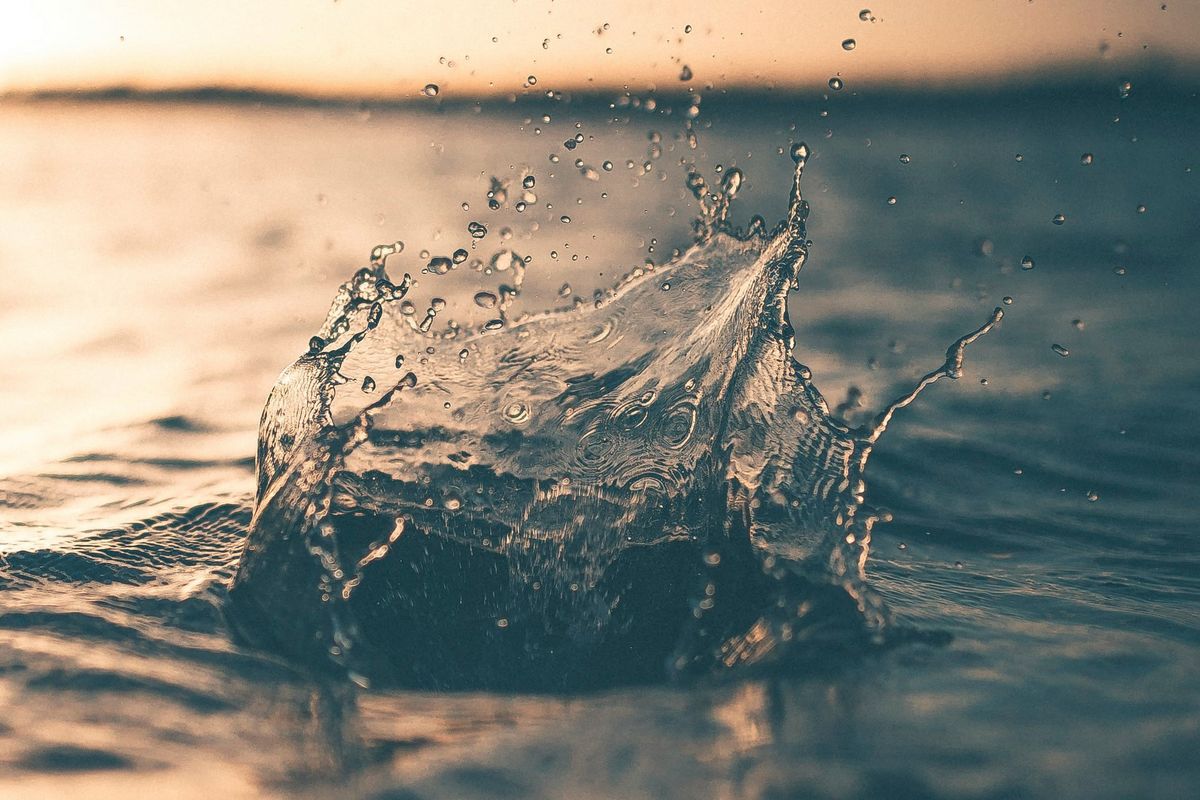For better or worse, it's easy for all of us to find ourselves in a bubble. We're surrounded by a certain way of thinking, a certain lifestyle, and a certain perspective on cultural norms. Because of this, we can get caught up thinking the people outside of our little bubble are weird or different, and that the strange ways they might do things are flat out wrong or bizarre. This is especially common in the United States. The world, in a lot of ways, is America-centric. Most anywhere we go, people will speak English, accept our currency, and know who Taylor Swift is.
But the truth is that there's a big wide world out there, full of vastly different cultures and ways of life! And have we ever stopped to think...maybe we're the weird ones?
A recent thread on Reddit posed the question, "What is something Americans consider normal, but people from other countries find it disturbing?"
Here are the best responses on things that are normal in the U.S. but considered strange, shocking, horrifying, or just plain weird elsewhere.
1. Portion sizes
 American portion sizes are colossal.Canva Photos
American portion sizes are colossal.Canva Photos
"The portion thing always makes me laugh now since I learned Europeans apparently dont do leftovers from restaurants. I get that if you're used to a restaurant portion being something you always eat all of in one sitting our portions probably seem ridiculous. ... As a big dude who eats a ton just to live, I'm glad our portions are what they are," one user wrote.
A 2016 article in Vice cited a study conducted at the Jean Mayer USDA Human Nutrition Research Center on Aging at Tufts University in Boston that found "92 percent of American restaurant meals—including meals served at both chain and non-chain restaurants—contains way too many calories." According to the researchers, single-meal servings (i.e. excluding beverages, appetizers, and desserts), regularly exceeded recommended calorie requirements, meaning a single meal could provide the average person's caloric requirements for the entire day.
2. Garbage disposals in kitchen sinks
"Yeah, it’s wild how normal they seem here, but elsewhere they’re seen as loud, dangerous, or just plain weird," someone commented.
"They also seem to think we dump large amounts of food waste down them when they’re just meant for small scraps," a user added.
Garbage disposals, indeed, are not often found outside of the United States. In fact, they're outright banned in many European countries. The thinking is that encouraging people to scrape leftover food down the drain places additional stress on the sewage system and harms the environment. Thankfully, though, states such as California have had evolving composting laws in effect to reduce environmental stress caused by food waste, the latest of which went into effect at the start of 2022.
3. Prices don't include tax
Foreigners think it's weird when they come to America and a 99 cent item ends up costing $1.06. Differing sales tax across state lines is partly to blame, but users in the thread were convinced that's only an excuse:
"If the cash register knows the price, then the price sticker machine can be set with the same price. It's really that simple," someone wrote.
 Tax shouldn't be a not-so-fun surprise at the end of your shopping trip. Canva Photos
Tax shouldn't be a not-so-fun surprise at the end of your shopping trip. Canva Photos
4. Gaps between restroom stall doors
Visitors from Europe are used to public restroom stalls that are almost completely enclosed. In America, for some strange reason, we love leaving gigantic gaps between the edges of the door, the floor, and the ceiling. Why? There are a few reasons: It's easier to mop under the stalls this way, and less privacy means it's harder for folks to get away with doing sketchy things in the stalls. But either way, a lot of people don't like it.
"I once cried during a layover in the US because I needed to empty my menstrual cup after 12+ hours of traveling, and you could literally just see into every stall. Plus I need to squat down to do it, and the doors ended at my knees. A random lady saw me panicking and when I said the stalls weren't private enough, she said "awwwwe, are you European?"
5. So. many. commercials.
"I had a British friend ask why were there so many commercials during an episode of Family Guy," one user wrote.
"And the content of those commercials. Apparently it's only American doctors who need their patients to ask about some amazing new medication that has crazy side effects," another added.
6. We get healthcare through our jobs
It always struck me as funny that a country that supposedly loves entrepreneurs and small business owners makes it so incredibly dangerous to leave your job for any reason. It's even more shocking to people from, well, almost any other developed country.
"This job pays like shit and I hate it, but if I quit my essential medication won't be covered until I get hired somewhere else, so I can't risk it!" one user joked.
7. Worrying about the cost of the doctor
 A trip to the doctor shouldn't break the bank.Canva Photos
A trip to the doctor shouldn't break the bank.Canva Photos
At least a quarter of adults regularly skip necessary medical care because they're worried about how much it costs. Visitors from abroad are utterly horrified by the thought of having to consider whether potentially life-saving procedures fit the budget.
8. Cashiers don't sit down
People who work the cash register generally sit down in most parts of the world, including Europe. It's more comfortable and ergonomic, and, in fact, there's something called Right to Sit that guarantees this benefit.
In America, cashiers are often forbidden from sitting down while working, which comes as a big surprise to foreigners.
9. HOAs
HOAs exist in some parts of the world, but they are particularly intense in America. It can be a bucket of cold water for people who move here from abroad.
"A client of mine had a sick husband. He unfortunately passed away. She leaves her garbage cans out during this time and begins to get fined by the HOA everyday her cans are left out, and letters posted on her door," one user shared.
10. School children reciting the Pledge of Allegiance
 This totally isn't weird at all. Right?Canva Photos
This totally isn't weird at all. Right?Canva Photos
Some countries around the world have their own version of the Pledge of Allegiance. What's extremely rare is a democracy forcing children to recite their loyalty every morning and even face punishment if they refuse.
"Did a student exchange [in the US] when I was 17 and got detention on my first day for not saying it. I didn’t know it, but even if I did… It’s not my country! Tried so hard to politely explain that to the teacher and they wouldn’t have a bar of it," one commenter shared.
11. Our obsession with grass lawns
The love, nay, obsession, with lawns found in the America suburbs is not a global phenomenon. A lot of foreigners find it to be extremely strange, and a little disturbing. But there is a bright side:
"As a married, middle aged man with 3 kids, ill let everyone in on a little secret: Its the only time we get to ourselves... It also is really satisfying. But the actual reason behind why it became a thing is rooted in the classwar and racism like everything else in this country," one user wrote.
12. Declawing cats
Optional or cosmetic surgeries on pets are pretty unique to America, all things considered:
"Docking tails, and clipping ears, and dew claw removal on dogs, too! Our miniature pinscher has had all three done to her by her previous owner, and it's just so needlessly cruel. She didn't need any of those surgeries," someone wrote.
13. Wearing shoes in the house
 It's a choice. Canva Photos
It's a choice. Canva Photos
Shoes in the house is not uniquely American, but it's more common here than most other places around the world.
"This is insane and nasty. The city I live in unfortunately has a lot of shit — and I don’t mean from dogs — on the ground. Wearing shoes in the house is disgusting," someone wrote.
Personally, I love wearing shoes in the house—otherwise I'd constantly be stubbing my toes!
14. Circumcision
Again, a few other places around the world perform circumcisions, usually for religious reasons, but America is unique in the way it has become the default choice for almost every boy regardless of religion or background. Europeans, in particular, find this practice extremely strange.
"So glad I didn’t do this to my son. My fiancée’s family gave me serious backlash for choosing not to because all of the boys on her side of the family are circumcised. I simply told them that I am not a barbarian and I don’t care what they think," one user wrote.
15. Sugar in weird places
 America loves extra sugar in savory foods.Canva Photos
America loves extra sugar in savory foods.Canva Photos
A lot of food items on American shelves include tons of added sugar and high fructose corn syrup. You expect to see it in soda, candy, and desserts. But bread? Pasta sauce? Why is there so much sugar in everything?
Sugar is used regularly in America to enhance flavor and work as a preservative, whereas the practice isn't as common in many other countries.
This article originally appeared last year. It has been updated.





 American portion sizes are colossal.
American portion sizes are colossal. Tax shouldn't be a not-so-fun surprise at the end of your shopping trip.
Tax shouldn't be a not-so-fun surprise at the end of your shopping trip.  A trip to the doctor shouldn't break the bank.
A trip to the doctor shouldn't break the bank. This totally isn't weird at all. Right?
This totally isn't weird at all. Right? It's a choice.
It's a choice.  America loves extra sugar in savory foods.
America loves extra sugar in savory foods.
 Princess Odette Girl GIF by The Swan Princess
Princess Odette Girl GIF by The Swan Princess  Rose GIF
Rose GIF  sailor moon GIF
sailor moon GIF  river phoenix 80s GIF
river phoenix 80s GIF 
 All of this will be ours one day. Yay.
All of this will be ours one day. Yay.  Elderly woman with white hair on phone, sharing a story about a dead person her child has never met.
Elderly woman with white hair on phone, sharing a story about a dead person her child has never met.  Surprised elderly man in blue shirt against a yellow background.
Surprised elderly man in blue shirt against a yellow background. Elderly woman in pink shirt using a smartphone on a garden swing.
Elderly woman in pink shirt using a smartphone on a garden swing. TV for waking. TV for sleep.
TV for waking. TV for sleep.  Elderly man using a magnifying glass to read a piece of mail
Elderly man using a magnifying glass to read a piece of mail
Mom is totally humiliated after her kindergartner tells the teacher what she does for work
She was clearly mortified.
A mom is embarrassed by her child.
One of the great joys and stresses of parenting is that you never know what will come out of your child’s mouth. When you have young, inquisitive kids, they can say really inappropriate things to people without realizing they were being rude or possibly offensive. TikTok influencer Aurora McCausland (@auroramccausland), known for her DIY cleaning tips, recently told a funny story on the platform about how her son believes she makes a living. The problem was that she heard about it from her child's teacher.
Mom is embarrassed by her child
“The other day, I went and picked my five year old up from school and when I get to his classroom his teacher pulls me inside and says, ‘Hey, today he wanted to tell us about what Mommy does for work and said that Mommy makes videos in her bedroom but only when I'm [he’s] not at home,” McCausland recalled.
Given her body language while telling the story, McCausland was clearly mortified after hearing what her child said to his teacher. It makes it look like she may be posting videos to adult sites while her child is at school, which most people wouldn’t want their son’s teacher to know about.
The good news is that another teacher was there to clarify the young boy's comments by adding, “I think she makes TikTok videos.” The uncomfortable situation was a great invitation to chat with her son about what she does for a living. “So I have to have a conversation with my son about how he tells people what I do for work,” she finished her video.
The funny video went viral, earning over 1.7 million views on TikTok, and inspired many people to share the times when their children had funny ways of explaining their careers. The commenters were a great reminder to parents everywhere that if your child says something embarrassing, it's ok, just about everyone has been through it.
Moms share their most embarrassing moments
A lot of parents spoke up in the comments to show McCausland that she's not the only one to feel embarrassed in front of her child's teacher.
"My son told everyone that we were homeless (because we don’t own our home, we rent)," KBR wrote.
"I work in ortho.. my daughter told her teacher I steal people's knees bc she heard me talking to my husband about a knee replacement," Aingeal wrote.
"My son told a teacher we were living in our car over the summer. Camping. We went camping," Kera wrote.
"In kinder, my son thought Red Bull was alcohol and told his teacher I liked to have beer on the way to school," Ashley wrote.
My niece told her teacher her mom and dad work at the wh*re house. They work at the courthouse," Ellis wrote.
"My husband works as a table games dealer at a casino. Kindergartener, 'Daddy's a Dealer!' We now start every school year clearly stating he works at the casino," CMAC
"My son said we lived in a crack house…There’s a tiny chip in the wall from the doorknob," KNWerner wrote.
"My dad is a hospice chaplain and officiates a lot of funerals. My son and nephew were asked by their preschool teacher if their papa was retired or had a job. They told her his job was to kill people," Tiffyd wrote.
"My son said "my dad left me and I'm all alone" to a random person at the zoo. My husband was just at work," Shelby.
"I am now in my 70s. In my gradeschool, during the McCarthy era, I told my teacher my dad was a communist. He was an economist," Crackerbelly wrote.
"In Kindergarten, my daughter told her teacher that mommy drinks and drives all the time. Coffee. From Starbucks," Jessica wrote.
"Well I once told my kindergarden teacher a man climbs over our fence to visit my mom when her husband is not home... It was a handy man who came to fix gates when they were stuck," Annie wrote.
Ultimately, McCausland’s story is a fun reminder of how children see things through their own unique lens and, with total innocence, can say some of the funniest things. It’s also a great warning to parents everywhere: if you aren’t clear with your kids about what you do for a living, you may be setting yourself up for a very embarrassing misunderstanding. So, even if you think they know what you do ask them as see what they say, you could save yourself from a lot of embarrassment.
This article originally appeared last year and has been updated.